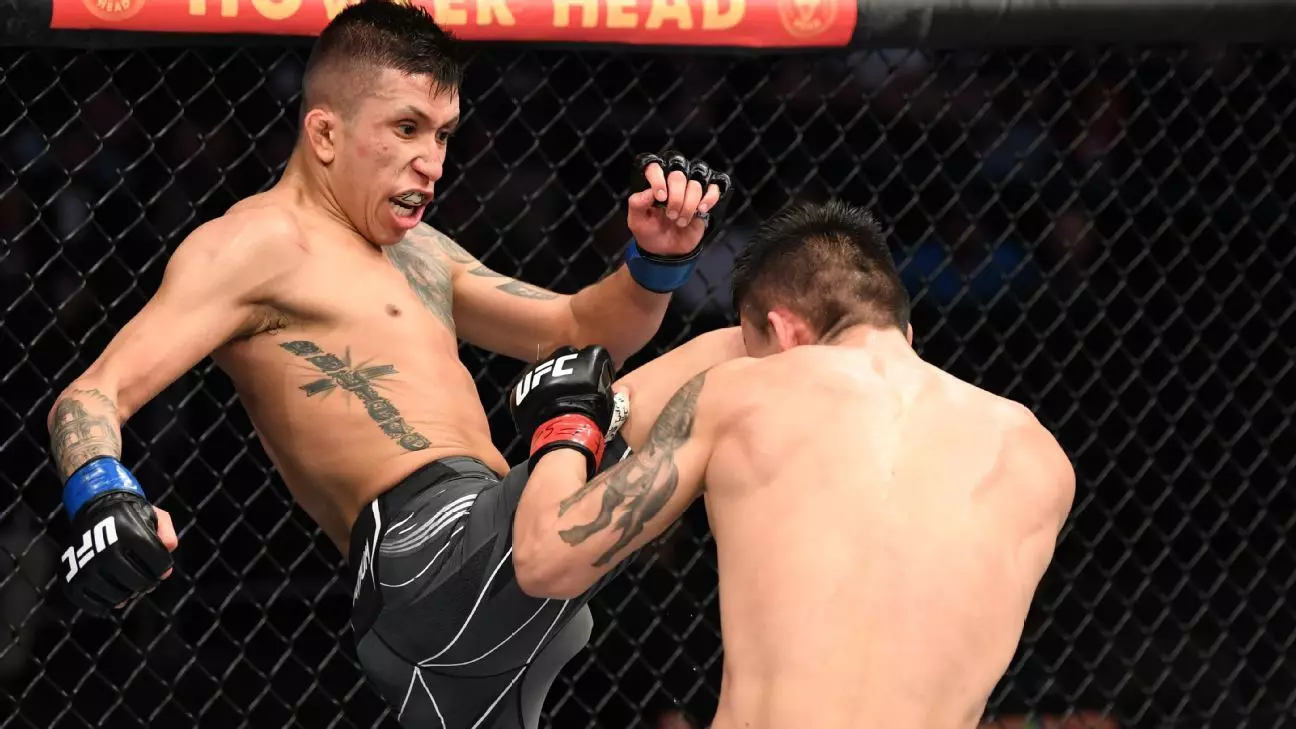In recent years, the world of mixed martial arts (MMA) has exploded in popularity, captivating fans with its high-octane action and fierce competition. However, with the rise of this exhilarating sport has come a shadowy undercurrent of controversies spanning from doping scandals to fraudulent betting activities. A particularly egregious case emerged involving MMA fighter Jeff Molina and his unscrupulous use of insider information during a 2022 bout between Darrick Minner and Shayilan Nuerdanbieke. This recent incident has raised severe concerns regarding the integrity of the sport and calls into question the regulatory frameworks that govern it.
Inside Intel: A Recipe for Disaster
Molina’s involvement in insider betting epitomizes the dangerous potential for corruption in combat sports. By using private information about a fellow fighter’s undisclosed injury to place “significant bets,” Molina didn’t just breach ethical standards; he shattered the trust that fans and athletes place in the sport. The Nevada Athletic Commission (NAC), which oversees combat sports in the state, underscored the severity of the situation when it flagged Molina’s actions during their hearing in Las Vegas. The details of these proceedings reveal a vulnerable regulatory environment where fighters could easily exploit private information for personal gain.
Rather than simply taking the role of an athlete, Molina positioned himself as a gambler who prioritized financial gain over the integrity of MMA. Deputy attorney general Matthew Feeley stated that even Molina’s admission of guilt underscores his awareness of wrongdoing, yet the choice to act with such blatant disregard for fairness might have ongoing implications for both the sport and his career.
The Fallout: Consequences for Fighters and Their Affiliates
The ramifications of this scandal ripple throughout the MMA community. Molina’s three-year suspension reflects a system attempting to distance itself from any hint of impropriety, yet it raises questions about the effectiveness of such measures. The simple act of imposing a punitive period proves insufficient without robust enforcement and more consistent oversight across the board.
Moreover, Darrick Minner, the fighter who initially sustained an undisclosed injury and subsequently found himself embroiled in this controversy, faced his own reckoning when the NAC suspended him for failing to disclose vital information. The dramatic shift in betting patterns leading up to their fight prompted investigations unless there’s confidence that all fighters are following the same rules, any performance in the cage is under constant scrutiny.
One cannot overlook the broader implications of this scenario, particularly the suspension of James Krause, Minner’s former trainer. Krause’s association with betting activities—operating as an agent for an offshore bookmaking system—puts a spotlight on the need for transparency in the training and preparatory processes athletes undertake. These interconnections not only compromise the integrity of the sport but may ultimately discourage individuals from entering MMA as a legitimate form of competition.
The Regulatory Challenge: Striking a Balance
As these events unfold, the UFC and the NAC must grapple with the crucial issue of regulatory responsibility. What measures can be taken to safeguard against similar occurrences in the future? Passive responses will no longer suffice; proactive strategies addressing both the culture of gambling and the potential for inside information will need to be instituted firmly. The UFC’s hesitance to comment on the incidents reflects a desire to maintain a polished public image but highlights an urgent necessity for them to take decisive steps to secure integrity within the sport.
Educating fighters on the ethical boundaries surrounding gambling can draw a clear line where the interest of fair competition lies. Likewise, building a robust framework for reporting any suspicious activity would cultivate an atmosphere of accountability. If stakeholders continue to ignore the growing issue, they risk perpetuating a culture that rests on shaky ground, ultimately jeopardizing the sport’s future.
A Call for Change: Preserving the Spirit of MMA
For the robust and growing world of MMA to survive and thrive, all participants—fighters, trainers, regulators, and fans—must commit to preserving the integrity of the sport. The events surrounding Molina and Minner serve as a crucial lesson on the impact that unethical behavior can inflict. Only through a collaboration harmonizing ethics and entertainment can MMA flourish untainted by corruption, ensuring that the spirit of competition remains vibrant and unblemished in the glare of the spotlight. As fans and participants alike champion this sport, the overarching message must be abundantly clear: Fair play is not optional; it’s essential.

